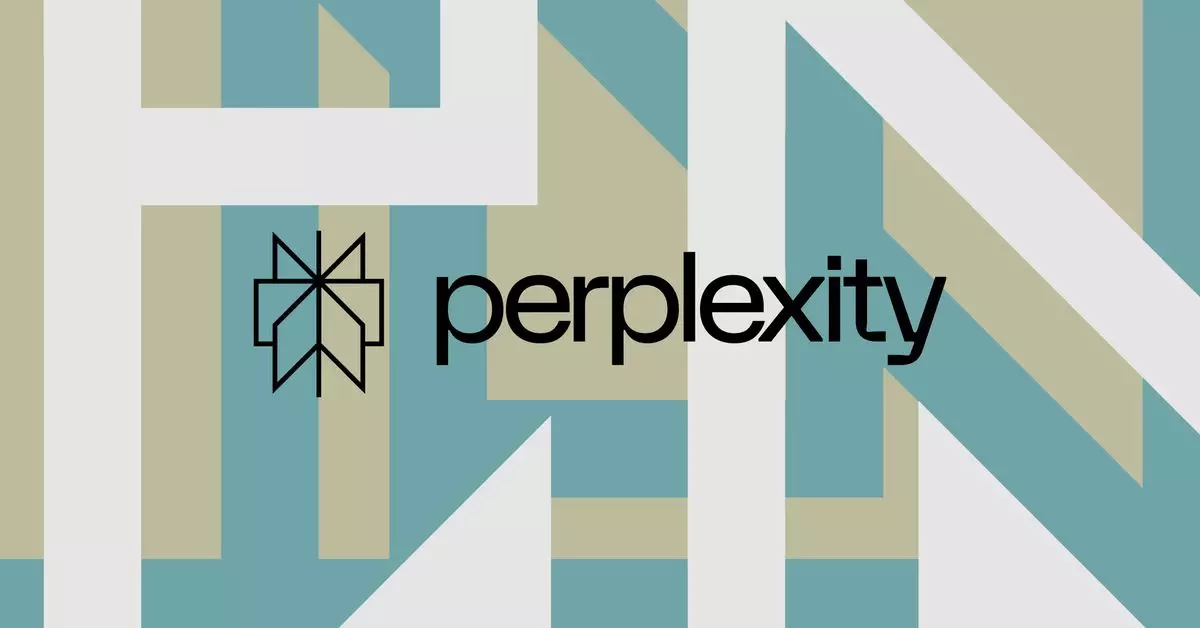The rapid evolution of Artificial Intelligence (AI) has dramatically transformed various industries, notably entertainment and media. AI startups like Perplexity have emerged with ambitious goals, developing platforms that optimize how information is retrieved and presented to users. However, this revolution has sparked tensions, particularly between AI companies and established media corporations, exemplified in the recent lawsuit by News Corp against Perplexity. This ongoing dispute highlights critical issues centering around intellectual property, copyright, and the implications for future interactions between technology and journalism.
The core of this skirmish revolves around accusations that Perplexity’s AI search engine scrapes content authored by journalists and publishers without gaining proper authorization. News Corp, the parent entity of well-known outlets such as the New York Post and Dow Jones, claims that Perplexity significantly replicates content, undermining the rights and revenues of content creators. Within this framework, it is essential to examine the deeper implications of such practices, not just for the concerned companies but for society as a whole.
Fact Ownership and Copyright Complexities
At the essence of this legal contention lies the question of ownership over facts and the expression of these facts. Perplexity has argued that news organizations like News Corp seem to prefer a landscape in which corporations, rather than the public, have ownership rights over reported facts. This notion raises a fundamental legal and ethical question: Can companies lay claim to universally acknowledged truths, or does copyright solely extend to the unique expressions and interpretations of these facts?
While it is true that basic facts cannot be copyrighted, the phrases and structures used to convey these facts can be integral to intellectual property laws. Instances have surfaced where Perplexity faced accusations from other media outlets, including Forbes, for allegedly using “eerily similar wording” in its search results. Such claims underscore the navigational challenges AI companies face as they tread the thin line between innovative information retrieval and copyright infringement.
Responding to such legal challenges, Perplexity has voiced its perspective, describing the legal actions taken against it as an outdated and unnecessary confrontation between technology and media. This narrative invites an analysis of the motivations driving corporations like News Corp to pursue litigation aggressively. Perplexity asserts that their intent is to collaborate with media institutions—this comes in the form of a revenue-sharing program initiated in partnership with several major publications including Fortune and Der Spiegel. This proactive approach reveals the company’s willingness to explore mutually beneficial arrangements, contrasting sharply with the adversarial nature of lawsuits.
The tension intensifies when observing the rhetoric employed by News Corp. The organization positions itself as a custodian of intellectual property, accusing Perplexity of “shamelessly” presenting derived material as alternatives to original sources. This framing reflects a defensive posture common in industries facing disruption, as they strive to protect established revenue models from emerging technologies. Nevertheless, by adopting a confrontational attitude, companies risk further alienation from potentially innovative collaborators who might otherwise share their vision of adaptation within the evolving media landscape.
As the debate around AI’s role in media unfolds, it is necessary to consider strategies that could facilitate a collaborative future rather than one riddled with legal combat. The burgeoning world of AI and its capacities should not be seen merely as a threat to traditional journalism, but rather as an opportunity for creative partnerships that enhance audience engagement and content delivery.
For AI companies, ethical practices in content use must be prioritized, focusing not only on compliance with existing copyright laws but also on establishing robust partnerships that respect the labor of journalists and creators. For traditional media, embracing change and forging alliances with AI innovators could yield fresh avenues for revenue and unprecedented forms of storytelling.
The ongoing friction between AI startups and established media must be navigated carefully. It requires a shared commitment to ethical standards, a respect for intellectual property, and an openness to collaborate—ensuring that the influx of technology does not compromise the integrity of journalism nor stifle the possibilities that lie in innovation.

